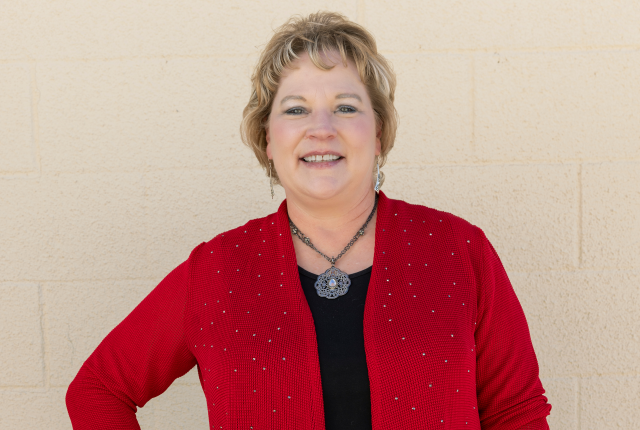THE COVID-19 PANDEMIC was not kind to New Mexico students, and in summer 2021, Lynda Spencer was staring down a dilemma as principal of Blanco Elementary School, located east of Farmington. Many of the school’s low-income students don’t have school supplies or internet connectivity when they go home. Throughout the pandemic shutdowns, there was no possibility of online learning for those children. Kids without internet access were reduced to using worksheet packets to substitute for a teacher.
“We have kids during the pandemic who didn’t have face-to-face contact for a year and a half,” says Spencer. “In first, second, and third grade, that’s phonics, reading, and basic math. We have kids who missed all of that.”
Test scores from the 2020–2021 year showed that the entire school had a single-digit proficiency in math. Students had lost their competency over the pandemic—or never received adequate instruction to begin with.
So, with the support of the Math Teacher Leader Network (MTLN) initiative through the Los Alamos National Laboratory, Spencer spearheaded a range of professional development programs to help teachers improve their math instruction and up the overall student scores.
While Spencer oversaw the logistical planning for the teacher training, MTLN helped foot the bill for substitutes, catering, and other types of financial support. Thanks to having dedicated time and space, teachers could finally develop and plan out math lessons and practice them with MTLN trainers. Afterward, fellow teachers provided feedback on what was working and what wasn’t. In a public school with economic challenges, making the space to refine teaching skills often isn’t a possibility. The push for it had to come from Spencer.
“If you don’t have your professional development and do it right,” she says, “it’s not going to make it into the classroom.”
Spencer was raised in Prewitt, near Grants. Her mother worked in the local post office, her father in a nearby oil refinery. Neither finished college. “When you grow up in Prewitt, there’s not a lot to do other than school,” she says. “My parents always expected me to do my best, no matter what it was. They were always my biggest supporters and still are.”
A French teacher at Gallup High School inspired Spencer to pursue a career in education. After college, she spent a semester in France and began teaching both French and Spanish. Over the next 20 years, she served as a teacher in Texas and New Mexico classrooms before moving to principal roles, including the past seven years at Blanco.
“She’s very candid about the reality of where the school is,” says Zachary Leonard, co-founder of MTLN and one of Spencer’s teacher-training partners. “She is continuously reflective and learning from what they’ve done, making changes, adjusting, and improving,” adds MTLN co-founder Randy Merker.
Thanks to Spencer and MTLN, Blanco has climbed from that single-digit proficiency to approximately 30 percent. Students are more engaged in their mathematics instruction. Teachers are happier and more comfortable flexing their lesson-planning muscles. Math has seeped outside the classroom into summer boot camps and extracurricular workshops. Step by step, the teachers and students have focused on basic topics such as telling time and progressed all the way to problem solving, something that would not have been feasible before this initiative. “I don’t feel like my work is done,” Spencer says, “especially with math.”



